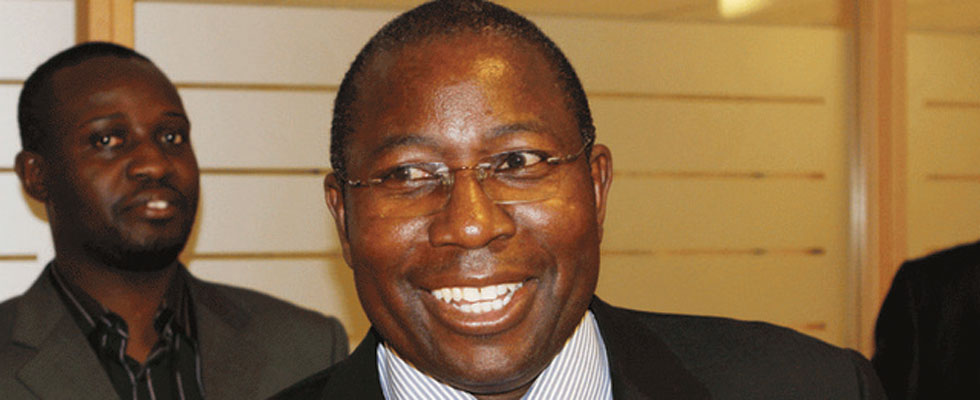
MDC Renewal Team treasurer general Elton Mangoma (pictured right) who has been arrested six times since 2007, says he is worried about the police suspect profiling, an exercise he says is intrusive and unconstitutional.
By PAIDAMOYO MUZULU
His comments come after his 18-hour incarceration at Harare Central Police Station last week on charges of criminal abuse of office during his time as Energy minister between 2009 and 2013.
Police allege Mangoma verbally instructed a senior Zesa employee to cancel a Zesa prepaid electricity voucher selling contract and award it to OK supermarkets. The state says the cancellation and awarding of the rights to OK without going to tender was criminal.
Mangoma said in an interview with The Standard that police conduct bordered more on being personal than simply doing their duties during their interviews.
He said he was taken aback by the new profiling form that he was asked to complete at the police station as part of his interrogation.
“The profiling form is intrusive. It asks personal issues not related to the crime one is being charged with and to that end, I will challenge its constitutionality,” he said.
“Among the objectionable questions are details about one’s spouse beyond their names and address, issues surrounding vehicles and immovable property one owns or leases and shockingly if one has a boyfriend or girlfriend.”
- Chamisa under fire over US$120K donation
- Mavhunga puts DeMbare into Chibuku quarterfinals
- Pension funds bet on Cabora Bassa oilfields
- Councils defy govt fire tender directive
Keep Reading
The former minister said conditions in the cells had improved but overcrowding was still a big issue.
“The cells now have flushing toilets unlike in the past and there are also some blankets, but I was in a cell with 13 other suspects instead of the designated capacity of six people,” he said.
The police are still struggling to feed detained persons who have to rely on their relatives and friends to bring them food from outside.
“During my incarceration we were called out around 8pm or 9pm from the cells to the main reception area for roll call and to have food if you had any brought for you by relatives,” he said.
Mangoma believes that many of the people in police cells could attend court from the custody of their lawyers. It appeared, he said, that detention was now a form of punishment.
“I for one had handed myself over to the police and my lawyer was willing to take custody of me and assured the authorities that she would present me to court when called upon to do so,” the former minister said.
“There was a young boy, probably 18 or 19 years of age from Goromonzi High School, who had been arrested on suspicion of stealing a cellphone from a fellow student. I honestly believe there was no need for incarcerating the child. They could have released him into his parents’ custody.”
Mangoma, who is now out on $1 000 bail, said the Prosecutor General’s Office tried unsuccessfully to put further conditions after the magistrate had granted bail. “I am still to understand the logic of the prosecutor trying to impose further bail conditions,” he said.
Mangoma has been ordered to report once a week at the police as he awaits his trial, which may be long in coming, considering that the charges are not substantially different to the other two occasions when he was arrested and the charges were eventually dropped.











